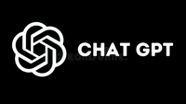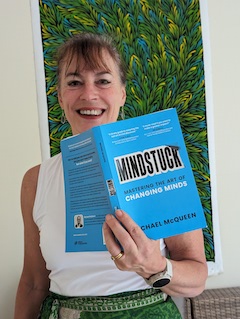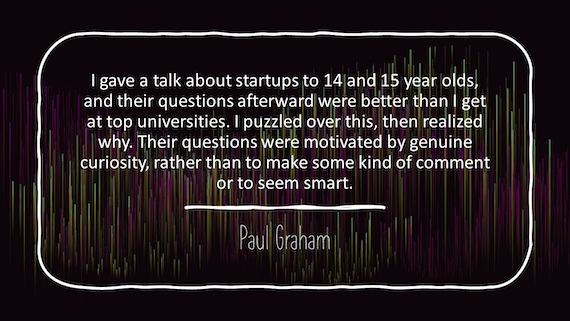|
|
|
|
|
|
|
|
|
Dear reader,
Welcome to The Director's Dilemma December 2023
Each month this newsletter looks at a real-life board scenario and considers a range of responses. The scenarios are de-identified to protect the individuals concerned. This month we advise a newly appointed director who doesn't know how best to add value.
Of course, scenarios in the newsletter are general, I work with boards and directors as a confidential mentor to help them beat challenges and seize opportunities. If that sounds like something you would like, please call me.
To read this email in a web browser, go to www.mclellan.com.au/newsletter.html and click on 'read the latest issue'. I hope you will enjoy the latest dilemma:

Imogen has recently been appointed to her first paid board. She has completed a company director course with her local governance institute and has served on a not-for-profit in the past. She is thrilled as the company works in a sector where she has some executive experience and a strong personal interest.
She is very keen to make a good impression and build her career in the boardroom. She also wants to add value as that is something she has been taught that good directors should do.
But Imogen is confused; she doesn't know how to add value.
Her instructors on the course didn't mention anything specific or concrete for her to do and they did warn her about 'crossing the line' and getting too deep into operations or losing her independence.
What are some things that Imogen can safely do to go beyond just reading the papers and turning up to meetings so she can add real value?
How can she stand out as a valuable addition to the board?
|
|
|
|
Scott's Answer

Navigating the role of a new director can be a challenging journey. What sets a remarkable board director apart is the unique value they bring to the table - a fusion of knowledge, influence and leadership.
To stand out as a valuable addition to the board without delving too deep into operations, Imogen might consider the following approach:
-
Firstly, begin by thoroughly grasping the organization's strategic vision and objectives. Imogen can familiarize herself with the big picture and help ensure the board's decisions align with these overarching goals by asking safe questions. This strategic alignment will set her apart as a director who thinks holistically and contributes to the board's vision.
-
Secondly, ask thought-provoking questions. Valuable directors are often those who ask insightful questions that encourage robust discussions. By framing questions that challenge assumptions, explore potential risks, or identify growth opportunities, Imogen can stimulate critical thinking among her peers without diving into day-to-day operations.
-
Lastly, leverage her expertise. Imogen should not underestimate the value of her expertise or industry knowledge. She can share her insights when relevant, demonstrating how her unique perspective can benefit the organization. By doing so, Imogen will showcase her value without micromanaging operational matters.
As a new director, Imogen's mission is to be a strategic thinker, an inquisitive questioner, and a source of valuable insights over time. This approach will distinguish Imogen as an indispensable member of the board while keeping her focused on the broader, strategic aspects of her board role.
Scott Baldwin is a certified corporate director based in Winnipeg, Canada. He is also an author, publisher and co-founder of DirectorPrep.com, a for-profit social purpose company that creates practical tools for board directors who choose a growth mindset.
|
|
|
|
Julie's Answer

When David Beckham joined Real Madrid, I'm sure he didn't spend the first season jogging around the pitch and getting used to how things were done there compared to his original Manchester United. New directors should also get on the pitch and start scoring goals!
Unlike Beckham, Imogen doesn't need to do much; she needs to understand a lot. That will help her contribute appropriately and with maturity.
Imogen should review her due diligence and any items that she wanted to know before joining but couldn't find out from the resources available to her at that time. Now she can ask and get.
She should review her induction plan with the Chair and ensure that all of those asks are included. This is a good meeting to ask about the board's annual calendar and get access to papers for at least the past three meetings so that she can prepare for upcoming meetings.
Sitting in on any committee meetings in the first year will help her get deeper insights and a holistic view of the company. Spending time with the CEO and C-suite is another great practice to include in her induction.
She should also schedule sufficient reading and research time before each board and committee meeting.
An often-overlooked aspect of preparing to 'hit the ground running' is getting to know her fellow directors. A coffee with each of them will help her to understand their personalities and likely communication preferences. She needs to learn how to make her contribution in a way that will be effective and may need to adopt to their styles to be better heard.
This effort will help her contribute fully and well.
Julie Garland McLellan is an experienced non-executive director and board advisor based in Sydney, Australia.
|
|
|
|
Marco's Answer

Being selected to take on the role of a board member is an honor but also a liability. Imogen, like most members, is eager to make a meaningful contribution to the company and establish herself as a valuable addition to the board.
But what does that mean? Board Membership is about adding value beyond simply concentrated listening in meetings and thoughtful reviewing of materials.
To address Imogen's needs I recommend she adopt the strategies I use in my tailored Onboarding Program to enhance her board effectiveness:
-
Leverage Expertise: Share her insights and knowledge gained from her professional background and personal interest in the company's sector. Provide real-world examples from her own experience, challenge assumptions and offer alternative perspectives.
-
Engage Proactively: Ask exploratory questions to encourage deeper analysis and critical thinking. Demonstrate willingness to engage with the management team and delve into the company's strategic direction.
-
Build Relationships: Connect with fellow board members and management team members outside of formal meetings. Understand their perspectives and foster collaboration and trust.
-
Provide Feedback: Offer objective feedback on management's performance, strategies and decisions. Base feedback on sound reasoning and evidence to provide valuable insights.
-
Become a Resource and an Expert: Actively seek out and share relevant information, industry trends or potential opportunities with the board. In parallel read industry reports, attend relevant conferences and participate in professional development opportunities to stay abreast of the latest trends and regulations in the sector.
Imogen may consider working with a leadership consultant, to provide personalised guidance, assess her strengths and areas for development, develop a leadership plan, offer ongoing coaching and mentorship and facilitate networking and relationship building.
Marco Arcaini is Founder and Managing Partner, AltoSearch GmbH | AltoPartners Germany. He is also a practicing executive coach and has taken executives and board members through a comprehensive Onboarding Program. Marco is based in Wiesbaden, Germany.
|
|
|
|
Chat GPT's Answer

Imogen, congratulations on your appointment! Stepping into a board role can be both exciting and daunting, but there are ways to make a meaningful impact without overstepping boundaries.
Firstly, leverage your executive experience and personal interest in the sector. Use this knowledge to ask insightful questions during meetings. Challenge assumptions respectfully and offer alternative perspectives. Your familiarity with the industry could provide valuable insights that others might overlook.
Seek to understand the company's strategy thoroughly. Connect the dots between the organization's goals and the decisions made in the boardroom. If you notice a gap between the two, propose solutions or initiatives aligned with the company's vision.
Consider establishing relationships with key stakeholders. Engaging with management beyond board meetings can provide a deeper understanding of the company's operations and challenges. However, be cautious not to delve too deeply into day-to-day affairs, maintaining a strategic oversight instead.
Bring your not-for-profit experience to the table. Highlight the lessons learned, especially in areas like governance, risk management or stakeholder engagement. Drawing parallels between these experiences and the current corporate setting can offer fresh perspectives.
Consider initiating or joining board committees. Your involvement in specific committees, such as audit or governance, allows you to dive deeper into critical areas without encroaching on management responsibilities.
Lastly, actively contribute to board discussions and decisions. Preparation is key - thoroughly review meeting materials beforehand, raise pertinent questions and suggest constructive ideas. Being engaged and proactive demonstrates your commitment to adding value and contributing to the board's success.
Remember, adding value doesn't always mean making grand gestures; sometimes, it's the consistent, thoughtful contributions that truly make a difference.
Chat GPT is getting more human every day and it (unless all the kerfuffle at OpenAI was due to it being let loose) resides in Cyberspace.
|
|
|
|
Mindstuck: Mastering the Art of Changing Minds by Michael McQueen

This is a very useful book for anyone who is involved in building consensus from diversity. For a company director, or chair, it should be required reading.
Whilst the book doesn’t reveal any new research, it puts together existing science and tells readers how to use that to shift the way people think or feel about an issue.
Michael writes in a very engaging style, much as he presents, and sets out his topic clearly. There are plenty of insights and practical tips. I have already tried a few ideas from the book and found them to be helpful. If you are struggling to be heard and accommodated into the prevailing views of your board, then this book might just have the tips you need.
Would this make a good Christmas present for the director who has everything else? I think so.
Available at Amazon.com and Amazon.com.au
Where is Julie? I am in Sydney, Australia, and looking forward to a relaxing break over the holiday period. I'm planning on releasing two new courses for you:
-
A 'Due Diligence before Directorships' course that will cover all of my best practical tips for making a thorough investigation before placing yourself at risk by joining the board
-
A 'Confidentiality and Conflicts of Interest' course that is specially designed for nominee directors and for directors on the boards of federated or subsidiary boards.
Both of these courses will be online. If you would like me to run an in-person course in your hometown, give me a call and we can get it scheduled.

Get better Board Papers - Your board's decisions are likely only as good as the papers it receives. If you are less than 100% happy with the papers that your board receives then I have just what you need: A recently updated one-day training course on Writing Better Board Papers.
New content now includes best practice on preparing papers for use with board portals, writing compelling recommendations and the process for handling questions prior to the board meeting. Book online at https://tinyurl.com/Melb20-02-24 or https://tinyurl.com/Syd06-03-24
If you would prefer an in-house course for your executive team, please call or email me, or ask your training department to contact me at julie@mclellan.com.au to find a date that suits.
Do Better Due Diligence - Ten months before Dick Smith was placed into administration, a respected and well qualified director joined the board. What questions could have been asked to alert him to the potential dangers ahead?
This course will consider legal, financial, strategic and human due diligence to ensure that you are well placed to understand the challenges and opportunities of board appointments before you sign the consent to act form. Delivered in one 90 minute online session and supported by a comprehensive training manual, this course will equip you to build the board portfolio that will satisfy your aspirations. Book at https://tinyurl.com/Zoom14-12-23
Video resources - I post short video insights on LinkedIn. They disappear after a few days. You might like to visit (and please subscribe to) my YouTube channel to see the videos whenever you want to watch them. Let me know if there are any topics you would like to see addressed.
Board review - Every board - just like every other team - needs to measure its performance if it hopes to improve. When your board next needs to conduct a performance evaluation or a governance review, please remember that I would be delighted to help. If I can help, please contact me at julie@mclellan.com.au.
Inspirational quote for December

Too many new directors speak to appear engaged or impress their audience. Only speak when you want to enhance the understanding of the board.
A note on names - A few readers have asked me where I find the names for the protagonists in each case study; I 'borrow' them from people I meet or things that I read. It is possible that the name Imogen may have originated as an accidental or deliberate misspelling of the name Innogen, itself a possibly common Irish Gaelic name in the past, from the word 'inghean' meaning "maiden" or "girl", or a British Celtic name derived from the Latin Innocentia. Our protagonist, Imogen, must not waste her time as a 'maiden director', instead she must combine her fresh new perspective with a deep and detailed understanding of what has gone before so that she may add value from her very first meeting.
This newsletter - If you have any ideas for improving the newsletter please let me know. If you are reading a forwarded copy, please visit my website and sign up for your own subscription.
Suggestions for dilemmas - Thank you to all the readers who have suggested dilemmas. They are greatly appreciated. I will answer them all eventually. I could not write this newsletter without your help and without the generous help of all the experts who respond each month to the case studies.
Be a contributor - if you would like to attempt a response to the dilemmas for publication you will be most welcome. Simply reply to this email and let me know. I am always on the lookout for new talent from around the world so please reach out if that sounds like something you could do. I am also always grateful for the generous sharing of the current and past contributors. I couldn't create such an engaging newsletter without their help.
Let's connect - I use LinkedIn to share information about boards and directorship with my friends and acquaintances. If you use LinkedIn and we are not yet connected I will welcome a connection from you. You can find me at linkedin.com/in/juliegarlandmclellan.
Farewell until the next issue due 1 February 2024. I look forward to greeting you again then.
Enjoy governing your companies, it is a privilege!
Best regards,
Julie

Main photo by Tima Miroshnichenko at Pexels.com
Quote Illustration by Julie Garland McLellan
Disclaimer: The opinions expressed above are general in nature and are designed to help you to develop your judgement as a director. They are not a definitive legal ruling and do not constitute legal advice. Names and some circumstances in the case study have been changed to ensure anonymity. Contributors to this newsletter comment in the context of their own jurisdiction; readers should check their local laws and regulations as they may be very different.
Privacy: I am privileged to have your contact details and keep them as safely as possible. I will alert you if they are ever accessed by any unauthorised person. The technical staff at ayuda help with publishing and issuing the Director's Dilemma and have access so they can send the newsletters to you. I do not sell your details to anyone; they are kept only for the intended purpose - sending you this newsletter and helping to build the judgement of company directors by providing a safe way to consider potential responses to real life events.
|
|
|
|
|
|
|









